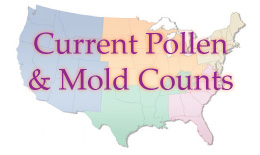Seasonal Allergies (Allergic Rhinitis)
Allergic rhinitis is an allergic inflammation of the nasal airways. When caused by pollens of any plants, it is called “pollinosis”, and if specifically caused by grass pollens, it is known as “hay fever”. The origins of this name stem from the fact that grasses shed their pollen into the air at about the same time that hay is being cut, but the condition involves neither fever nor hay!
Rhinitis Symptoms
Allergic rhinitis symptoms often include itching in the nose, throat or eyes, sneezing, runny nose, teary eyes or dark circles around the eyes. Hay fever symptoms tend to flare up in the spring and fall.
Dr. Philip Fleekop can diagnose specific allergens that trigger your illness, or determine if your symptoms are non-allergic. He will take a thorough health history followed by allergy testing. Skin tests or blood tests are the most common methods for determining your allergic rhinitis triggers.
Treatments
Once your specific allergens are diagnosed, Dr. Fleekop develops a plan to avoid allergens that trigger your symptoms. For outdoor allergies such as pollen, avoidance measures include limiting outdoor activities during times of high pollen counts.
Immunotherapy (allergy shots) is a proven treatment approach providing long-term relief for many people suffering from allergic rhinitis.
The doctor might prescribe medications to decrease allergic rhinitis symptoms. These medications may include nasal corticosteroid sprays, antihistamine pills, nasal antihistamine sprays or decongestant pills. The majority of allergy medications for seasonal allergic rhinitis (hay fever) work best if started before tree pollen is in the air each spring and allergy symptoms develop.
